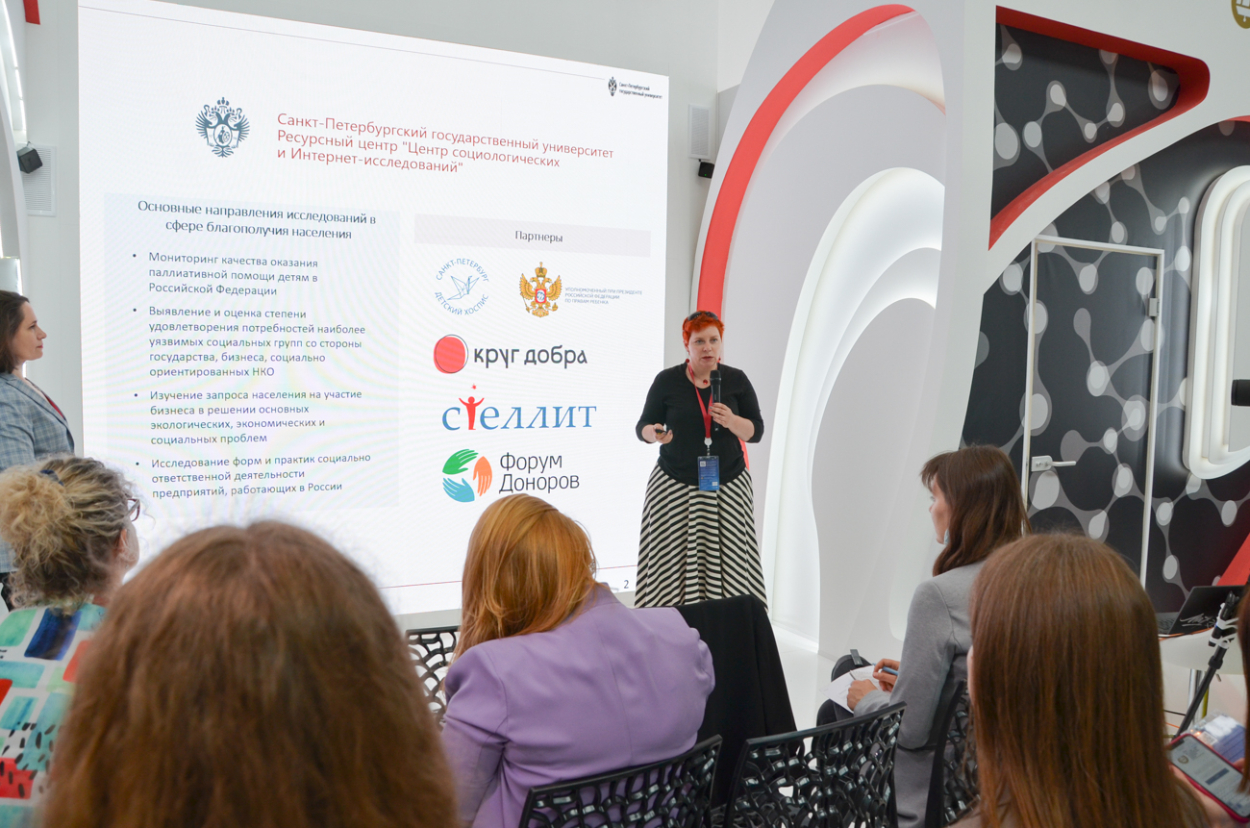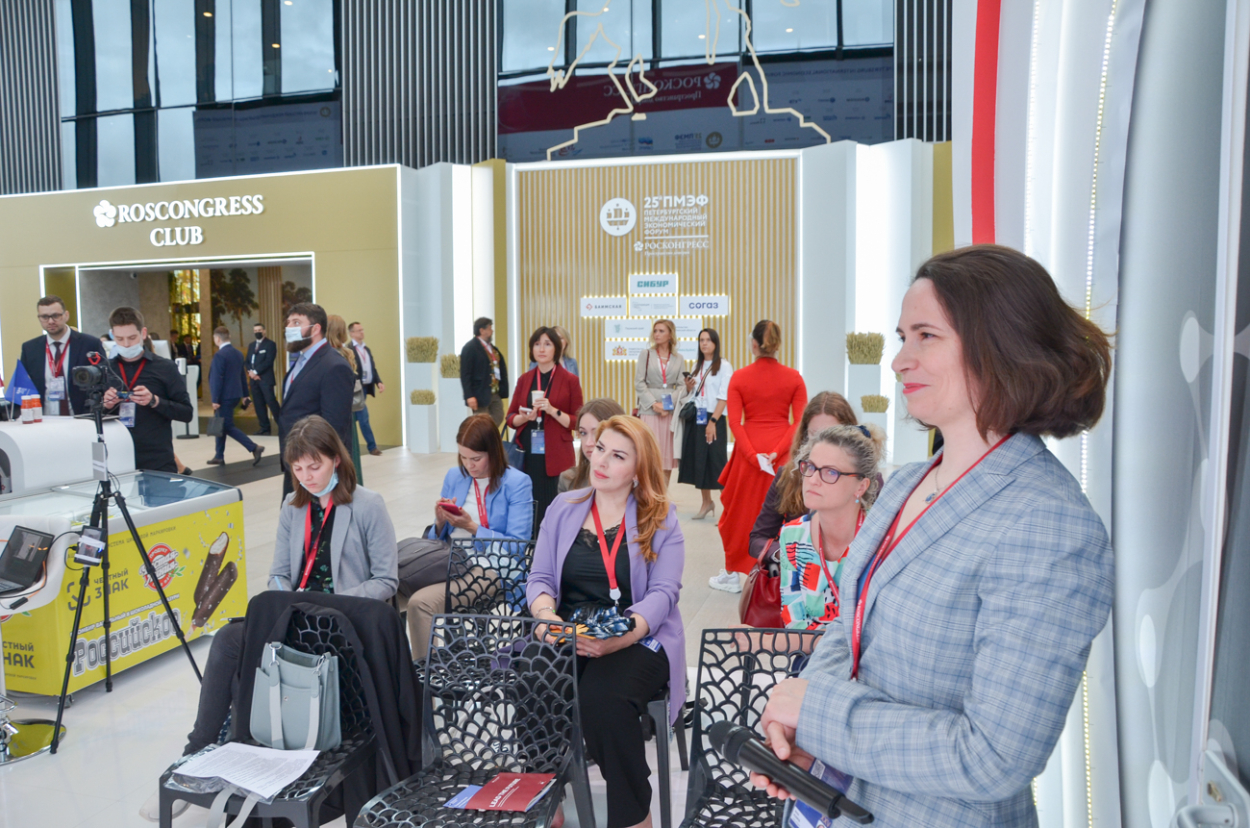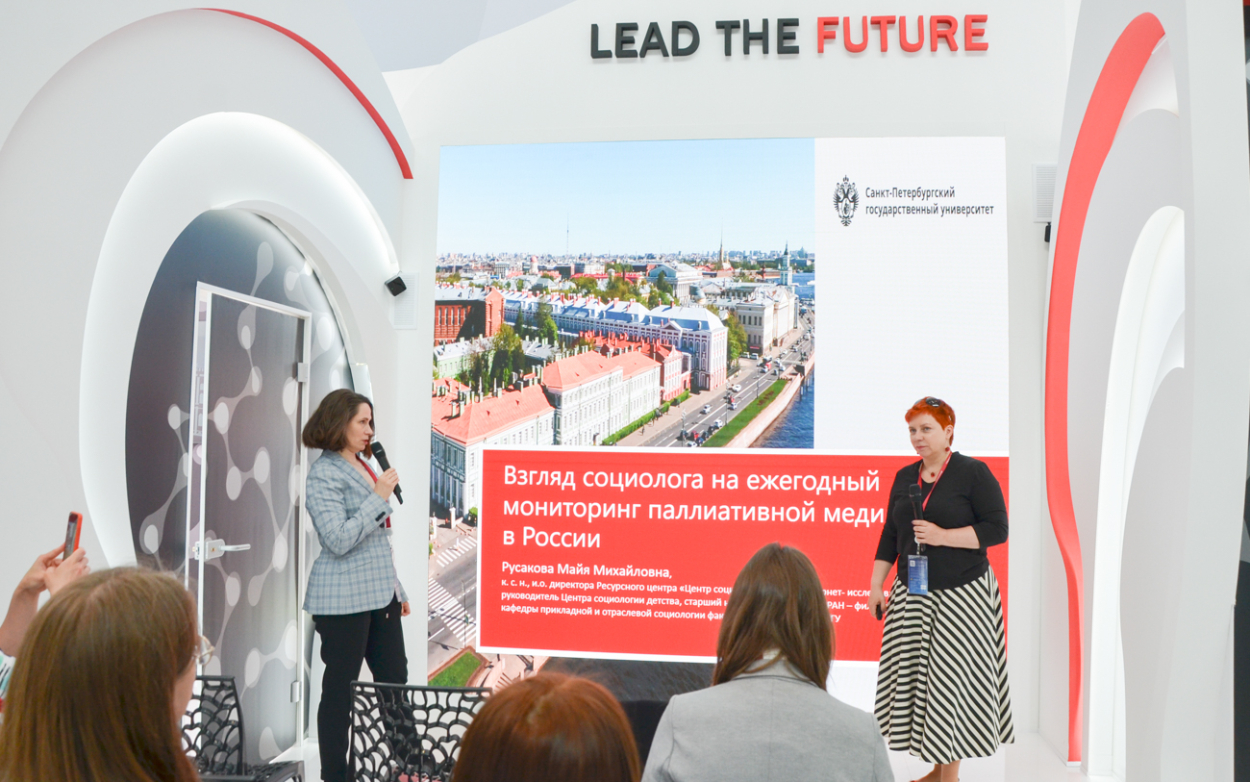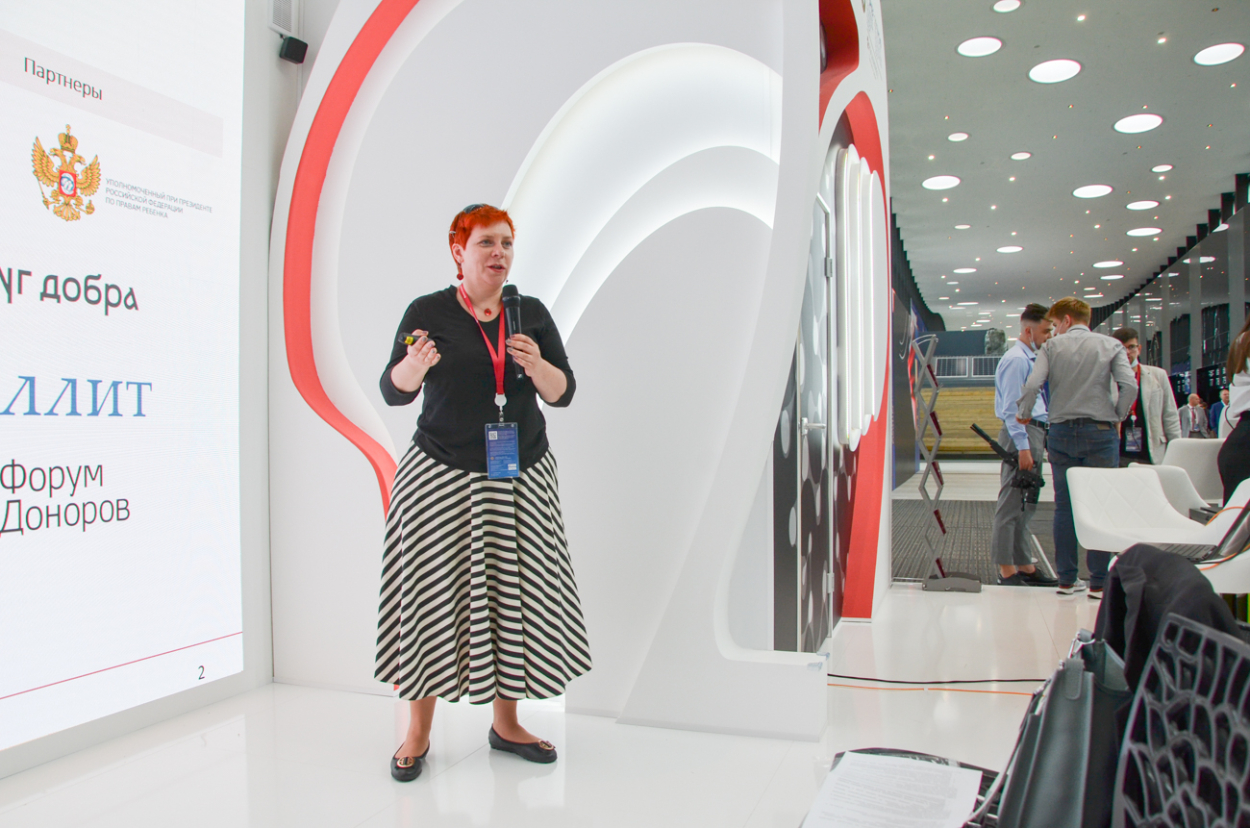St Petersburg University continues to implement its social mission
About a year ago, the Krug Dobra (Circle of Kindness) Foundation was created in Russia. It is set to support children with severe and incurable diseases. The foundation invests huge amounts of money to improve the quality of life of these children and their families. Many of these children reach 18 years of age and they can continue to develop and receive education. Yet to what extent is our society ready to prepare them for entering the labour market?
You can learn more about the monitoring results here .
At the St Petersburg International Economic Forum, Maiia Rusakova, Director of the Centre for Sociological and Internet Research at St Petersburg University, presented the results of the annual monitoring of care for children with palliative status and offered to discuss their educational and career prospects.
Together with the office of the Presidential Commissioner for Children’s Rights; the Children’s Hospice; the Krug Dobra Foundation; and NPO Stellit, the St Petersburg University Centre for Sociological and Internet Research conducts an all-Russian monitoring of the quality of palliative care for children. The study has been conducted in 85 constituent entities of the Russian Federation. It involves employees of regional ministries of health; ministries of social protection of the population; ministries of education; employees of local organisations involved in providing palliative care to children; and regional commissioners for children’s rights.
The survey was conducted among the parents or legal representatives of children. They were asked to evaluate the efforts of business, state and non-state organisations. According to the results of the survey, many parents believe that medical care is quite good. Although the purchase of specialised nutrition and medicines that are not included in the state register still needs to be improved, the situation as a whole is changing for the better. Non-medical services are extremely important for them. The most relevant, according to parents, is the provision or facilitation of the purchase of bathroom fixtures; specialised beds; calling a social taxi; congratulating a child on the New Year; visiting a swimming pool; and the opportunity to take a social break.
Parents are seriously concerned about social issues: everything that determines the quality of life outside of medical care. This is what is needed in absolutely all regions in Russia. For example, the career trajectory of children with palliative status or the educational prospects of children approaching the age of 18 are not within the scope of medicine and health care.
Maiia Rusakova, Director of the Centre for Sociological and Internet Research at St Petersburg University
Children with palliative status evoke great sympathy in society. A large number of programmes are aimed at supporting them. Yet will they receive the same amount of attention once they reach adulthood when they get adult status? Maiia Rusakova said that the provision of assistance should not end at this age just as graduates of orphanages need to be accompanied until they are 21-23 years old. ‘As a rule, children with severe incurable diseases do not have time to grow up by the age of 18 and remain children even after reaching this age,’ added Anna Kudrya, Deputy Chair of the Board of Directors, Director for External Communications and Project Activities at the Krug Dobra Foundation. ‘Many their needs should be satisfied by society and adults who are nearby, including organising a space for communication, friendship, and development. They have not yet become independent to live separately.’
During the presentation, the question was also raised about how the system of children’s palliative care, not only medical, is ready to prepare children for adulthood. Despite the fact that every citizen has the right to receive education, the education of such children at school is often of a formal nature. They are only listed as students. This means that the future educational trajectory for them is not considered. It is extremely rare for a child with palliative status to enter university. Yet if the education system created such opportunities for them, it would become common practice.
In theory, this should not be a miracle. These are exactly the same children, with the same rights and needs. Very many of them, while in children’s hospices, are eager to develop and get education. Now it is largely provided with the help of volunteers.
Anna Kudrya, Deputy Chair of the Board of Directors, Director for External Communications and Project Activities of the Krug Dobra Foundation
‘If the issue of education is at least included in the plans of the parents of seriously ill children, nothing is clear about their career in future. It turns out that the adult system of palliative care is not ready to accept children. The children’s system should be reoriented to the fact that children will live long’, said Anna Kudrya. The very fact that non-profit organisations and businesses are starting to build long-term projects in the field of palliative care means positive changes in society’s attitude towards children with serious illnesses, she added.
Based on the results of monitoring the development of palliative care for children, the regions-leaders and outsiders were identified. In the lagging subjects, this practice appeared later, and the impetus for its creation was the formal need to comply with the law. The concept of supporting children with severe incurable diseases does not correspond to the value system of a large proportion of the population. At the same time, there is no unified system of palliative care at the federal level. In other words, it is a collection of separate regional systems without a single development strategy and coordinating actions.
In future, St Petersburg University sociologists will continue the monitoring. Today, decision-making in many regions ensured that they could start building a system of palliative care for children at the regional level, Maiia Rusakova said. Additionally, in the course of the work it turned out that sociological methods for studying the subject of palliative care did not previously exist. So, the development of a methodology for such monitoring became an indirect result of the study.
In 2022, a hospice for young adults will open in St Petersburg. Its support programmes will be built around the needs identified by the monitoring. There will be a special focus on non-medical care.
St Petersburg University students also took part in the monitoring. Based on its results, a graduation project was written, which aroused great interest of the commission. Its results were included in the training materials for children’s ombudsmen on what information they should receive in order to work with the issue of palliative care. ‘It is important for us to involve students in the projects that have a social customer,’ said Maiia Rusakova, Director of the Centre for Sociological and Internet Research at St Petersburg University. ‘The project on the quality of palliative care for children is unique. Social issues still remain one of the key topics for St Petersburg University. Such research is consistent with the third mission of the University and enables you to contribute to significant projects and bring benefits by working with the public sector and leading public organisations in this area’.





